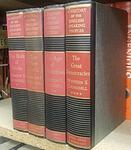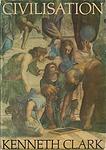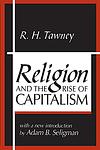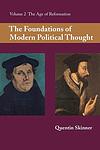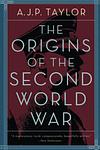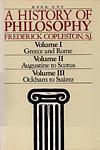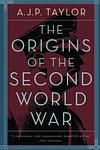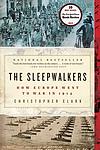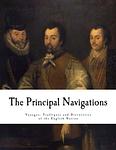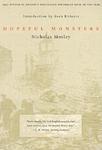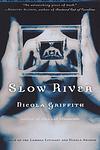The Greatest British "Europe" Books of All Time
Click to learn how this list is calculated.
This list represents a comprehensive and trusted collection of the greatest books. Developed through a specialized algorithm, it brings together 305 'best of' book lists to form a definitive guide to the world's most acclaimed books. For those interested in how these books are chosen, additional details can be found on the rankings page.
Genres
The "Europe" category for books encompasses a wide range of literature that explores the history, culture, politics, and geography of the continent. It includes works of fiction, non-fiction, and memoirs that delve into the diverse and complex societies of Europe, from the ancient civilizations of Greece and Rome to the modern-day European Union. This category also covers books that examine the impact of European colonialism and imperialism on other parts of the world, as well as the continent's role in global affairs. Overall, the "Europe" category offers readers a rich and varied selection of books that illuminate the many facets of this fascinating and influential region.
Countries
Date Range
Reading Statistics
Click the button below to see how many of these books you've read!
Download
If you're interested in downloading this list as a CSV file for use in a spreadsheet application, you can easily do so by clicking the button below. Please note that to ensure a manageable file size and faster download, the CSV will include details for only the first 500 books.
Download-
26. Postwar by Tony Judt
"Postwar" is a comprehensive analysis of the history of Europe from the end of World War II to the early 21st century. The book examines the major political, cultural, social, and economic changes that have shaped the continent, including the Cold War, the rise and fall of the Soviet Union, the rebuilding of Western Europe, and the challenges of integrating Eastern Europe into the European Union. It also delves into the impact of these events on the daily lives of Europeans, exploring themes of memory, identity, and the struggle to come to terms with the past.
The 2167th Greatest Book of All Time -
27. A History of the English-Speaking Peoples by Winston Churchill
This book is a four-volume work that provides a comprehensive history of the English-speaking peoples from their earliest origins to the mid-twentieth century. It covers the history of Britain, the United States, Canada, Australia, and other English-speaking countries, exploring their shared cultural heritage, political institutions, legal systems, and social structures. The author, a prominent political figure and Nobel laureate, offers a unique perspective on historical events, including the Roman invasion, the Magna Carta, the American Revolution, and the World Wars.
The 2332nd Greatest Book of All Time -
28. Civilisation by Kenneth Clark
"Civilisation" is an in-depth exploration of Western art and culture from the Dark Ages to the twentieth century. The book provides a comprehensive examination of the major creative and intellectual movements in Western history, including the Reformation, the Renaissance, the Industrial Revolution, and the Romantic era. The author uses art, literature, music, and architecture as a lens to explore the broader social, political, and economic context of each period, offering a rich and nuanced portrait of Western civilisation.
The 2706th Greatest Book of All Time -
29. The Rise And Fall Of The Great Powers by Paul Kennedy
The book in question offers a comprehensive analysis of the economic and military factors that have shaped the relative power of nations from the 16th century to the late 20th century. It argues that the rise and fall of great powers are closely linked to their ability to manage economic resources and maintain military strength. The author examines the patterns of history to show how the overextension of an empire's resources often leads to decline, and suggests that managing the balance between wealth and power is crucial for the longevity of a great power. The book also provides insights into the potential future of global power dynamics by considering the implications of these historical patterns for contemporary superpowers.
The 2827th Greatest Book of All Time -
30. The Struggle For Mastery In Europe by A. J. P. Taylor
The book provides a comprehensive analysis of European international politics from the aftermath of the Napoleonic Wars to the outbreak of World War I. It examines the complex system of alliances, crises, and diplomatic maneuvers that characterized the continent during the 19th century, focusing on the quest for dominance among the great powers. The narrative delves into the balance of power principle, the role of nationalism, and the impact of economic and military factors on the relationships between countries such as Britain, France, Germany, Austria-Hungary, Russia, and Italy. Through a detailed account of treaties, wars, and diplomatic strategies, the work explores how the struggle for supremacy shaped the modern European state system and sowed the seeds for future conflicts.
The 3279th Greatest Book of All Time -
31. The Origins Of Totalitarian Democracy by J. L. Talmon
The book explores the historical development of the concept of totalitarian democracy, a political system that combines an official ideology with an authoritarian regime, claiming to represent the will of the people. It delves into the paradoxical nature of this form of government, which seeks to achieve a utopian ideal of democracy through undemocratic means. The author traces the roots of this phenomenon back to the Enlightenment and the French Revolution, examining the ideological underpinnings and the evolution of political thought that led to the emergence of totalitarian regimes in the 20th century. The work is a critical analysis of how revolutionary movements can devolve into oppressive systems that justify their actions in the name of democracy and the public good.
The 3279th Greatest Book of All Time -
32. Religion And The Rise Of Capitalism by R. H. Tawney
"Religion and the Rise of Capitalism" is a comprehensive exploration of the historical relationship between the development of capitalism and the evolution of religious thought, particularly Protestant Christianity. The author delves into the moral and ethical dimensions of capitalism, arguing that its growth was significantly influenced by certain religious ideas. The book also discusses how religious beliefs have shaped economic systems and societal norms, and how these, in turn, have impacted religion.
The 3437th Greatest Book of All Time -
33. The Foundations Of Modern Political Thought by Quentin Skinner
This book is a seminal work in intellectual history, offering a comprehensive analysis of the development of political thought during the Renaissance and the Reformation. The author meticulously examines the evolution of key political concepts and the context in which they arose, tracing the transition from medieval to early modern political theory. The text delves into the writings of influential thinkers and the impact of their ideas on the structure of government and the nature of individual rights, ultimately providing a detailed understanding of the origins of modern political ideologies and institutions.
The 3613th Greatest Book of All Time -
34. Second World War by John Keegan
"Second World War" is a comprehensive account of the global conflict that took place from 1939 to 1945. The book offers a detailed examination of the political, military, and social aspects of the war, from the rise of Hitler and the attack on Pearl Harbor, to the Holocaust and the dropping of the atomic bomb. The author provides an in-depth analysis of the strategies and tactics used by the major powers, and presents a vivid picture of the human cost of the war. The book also includes a variety of maps and photographs to help illustrate the events and locations discussed.
The 3639th Greatest Book of All Time -
35. Nations And Nationalism by Ernest Gellner
This book presents a theoretical exploration of the concept of nationalism, the social conditions fostering it, and its role in the modern world. The author argues that nationalism is a product of industrial society, which necessitates a homogenous culture for communication and a centralized education system to sustain the industrial and economic structure. The work critically examines the origins and implications of nationalism, suggesting that it is not an ancient phenomenon but rather a relatively recent one that arises when a society transitions from agrarian to industrial. The author contends that nationalism serves to align the political and national unit, without necessarily corresponding to pre-existing ethnic or cultural identities, and is a political principle that holds that the political and the national unit should be congruent.
The 4119th Greatest Book of All Time -
36. Someone Like You by Roald Dahl
"Someone Like You" is a collection of dark and twisted short stories that explore the depths of human nature. From tales of revenge and deceit to stories of unexpected twists and turns, this book delves into the sinister side of humanity, leaving readers questioning their own morals and beliefs. With Dahl's signature wit and mastery of storytelling, each narrative is a captivating and unsettling journey into the complexities of the human psyche.
The 4568th Greatest Book of All Time -
37. Master Georgie by Beryl Bainbridge
"Master Georgie" by Beryl Bainbridge is a historical novel set in the mid-19th century during the Crimean War. The story revolves around the life of George Hardy, a talented but troubled surgeon, and the people who are drawn into his orbit. Through the perspectives of different characters, the book explores themes of love, war, and the complexities of human relationships. The narrative unfolds through a series of vivid and haunting images, capturing the harsh realities of war and the emotional struggles of the characters.
The 4879th Greatest Book of All Time -
38. A History of Philosophy by Frederick Charles Copleston
This book is a comprehensive overview of Western philosophy, starting from the Pre-Socratic philosophers to contemporary thinkers. It meticulously traces the evolution of philosophical thought, providing in-depth analysis of key figures and their contributions. The book also critically examines various philosophical doctrines, their influences, and their relevance to contemporary society. It's a valuable resource for anyone interested in understanding the origins, developments, and complexities of philosophical ideas.
The 5738th Greatest Book of All Time -
39. Religion and the Rise of Western Culture by Christopher Dawson
"Religion and the Rise of Western Culture" explores the deep influence of Christianity on the development of Western civilization. The author examines how Christianity shaped the cultural, political, and social aspects of Europe, particularly during the Middle Ages, and how it played a crucial role in the rise of the West. The book provides a comprehensive analysis of the interplay between religion and culture, highlighting the profound impact of religious beliefs on the evolution of Western society.
The 5738th Greatest Book of All Time -
40. A History of the Crusades by Stephen Runciman
This book offers a comprehensive and detailed examination of the Crusades, a series of religious wars fought in the medieval period. The author delves deep into the political, economic, and social circumstances that led to the wars, the key figures involved, and the long-lasting effects on both the Christian and Muslim worlds. The narrative is both scholarly and engaging, providing a balanced perspective on one of history's most complex and controversial periods.
The 6169th Greatest Book of All Time -
41. The Origins of the Second World War by A. J. P. Taylor
This book delves into the causes and events leading to the Second World War, challenging traditional views and suggesting that it was not a premeditated act of aggression by Germany, but rather a series of miscalculations and blunders by various nations. It argues that the war was not inevitable, but was the result of flawed diplomacy and the failure of the League of Nations. The author presents a detailed analysis of the actions of major players, including Britain, France, and Russia, providing a fresh perspective on the political climate of the time.
The 6169th Greatest Book of All Time -
42. The Nature Of Blood by Caryl Phillips
The book interweaves multiple narratives spanning different times and places, exploring themes of displacement, identity, and belonging. It delves into the experiences of a young Jewish girl during the Holocaust, an African servant in Renaissance Venice, and a British soldier in Palestine after World War II, among others. Through these disparate but interconnected stories, the novel examines the historical and ongoing consequences of racism and intolerance, as well as the complex legacies of trauma and memory. The characters' struggles for acceptance and peace reflect the broader human quest for dignity and connection in a world often marred by prejudice and division.
The 6532nd Greatest Book of All Time -
43. The Sleepwalkers: How Europe Went To War In 1914 by Christopher Clark
"The Sleepwalkers" by Christopher Clark is a comprehensive account of the events leading up to World War I. The book argues that the war was not caused by any one nation or individual, but rather a combination of factors including nationalism, alliances, and miscommunication. Clark explores the complex political landscape of Europe in the early 20th century and the actions of key players such as Kaiser Wilhelm II and Archduke Franz Ferdinand. The book provides a detailed analysis of the events leading up to the war and challenges traditional narratives of blame and responsibility.
The 8358th Greatest Book of All Time -
44. The Principal Navigations by Richard Hakluyt
"The Principal Navigations" is a comprehensive collection of English travel narratives from the 16th century, detailing a wide range of voyages and expeditions. The book includes accounts of journeys to the New World, Asia, and Africa, and features explorations by famous figures like Sir Francis Drake and Sir Walter Raleigh. The narratives provide a historical record of the era's discoveries, cultural encounters, and colonial endeavors, giving readers a unique insight into the period's maritime exploration and its impact on the world.
The 8669th Greatest Book of All Time -
45. The Wilder Shores Of Love by Lesley Blanch
"The Wilder Shores of Love" explores the captivating stories of four nineteenth-century Western women who defy societal norms to pursue love and adventure in the Middle East. Each woman's tale is a unique narrative of passion and perseverance, as they leave behind conventional lives to embrace exotic and challenging destinies with influential Muslim men. Through their journeys, the book delves into themes of love, freedom, and the quest for fulfillment, set against the backdrop of a culturally rich and diverse region. This work not only highlights the personal transformations of these women but also provides a broader commentary on the clash and melding of Western and Eastern cultures.
The 8726th Greatest Book of All Time -
46. The Suspicions of Mr Whicher by Kate Summerscale
"The Suspicions of Mr. Whicher" is a true crime novel that explores the infamous Road Hill House murder of 1860 in England. The book follows the investigation of Detective Inspector Jonathan Whicher, one of the earliest detectives in the London police force, as he tries to solve the murder of a three-year-old boy. The case, filled with scandal, intrigue, and mystery, was a sensation in its time and had a profound impact on the public perception of detectives and their methods. The book not only delves into the details of the case but also examines its influence on the detective genre in literature.
The 9589th Greatest Book of All Time -
47. The Reformation by Diarmaid MacCulloch
"The Reformation" is a comprehensive history of the European Reformation, which took place in the 16th and 17th centuries. It explores the religious revolution that led to the split of the Western Church into Protestant and Catholic factions, and how this division influenced the development of Western civilization. The book delves into the political, cultural, and social impacts of the Reformation, providing an in-depth look at its key figures, such as Martin Luther and John Calvin, and the profound changes they brought about in society.
The 9737th Greatest Book of All Time -
48. The War On The West by Douglas Murray
The book in question critically examines the contemporary discourse surrounding Western civilization, arguing that there is an ongoing cultural and ideological assault against Western values, history, and identity. The author contends that this attack is manifesting in various spheres, including education, politics, and media, and is characterized by a rejection of the West's contributions to the world and an emphasis on its historical wrongs. The narrative suggests that this pervasive negativity threatens the very fabric of Western societies, undermining their achievements and moral confidence, and calls for a reevaluation of the West's legacy in a more balanced and appreciative light.
The 10495th Greatest Book of All Time -
49. Hopeful Monsters by Nicholas Mosley
"Hopeful Monsters" is a novel that explores the lives of two intellectuals, a German physicist and a British anthropologist, against the backdrop of the political and scientific upheavals of the 20th century. Their personal journeys and love story are intertwined with their pursuit of understanding in the realms of physics, biology, and anthropology, as they grapple with issues such as quantum mechanics, genetics, and the nature of consciousness. The narrative also delves into the moral and ethical challenges posed by the rise of fascism and the advent of the atomic bomb.
The 10854th Greatest Book of All Time -
50. Slow River by Nicola Griffith
The novel follows the story of a young woman who comes from a wealthy family involved in high-tech environmental solutions but finds herself estranged and on the run after being kidnapped and then escaping. She assumes a new identity and struggles to build a life from scratch, taking a job at a waste treatment facility. As she navigates the complexities of her new, lower-class existence, she must deal with the trauma of her past, her family's dark secrets, and the intricate politics of the world she left behind. The narrative weaves together her present challenges with flashbacks to her privileged yet troubled upbringing, exploring themes of identity, environmentalism, and the intersection of technology and society.
The 10889th Greatest Book of All Time
Reading Statistics
Click the button below to see how many of these books you've read!
Download
If you're interested in downloading this list as a CSV file for use in a spreadsheet application, you can easily do so by clicking the button below. Please note that to ensure a manageable file size and faster download, the CSV will include details for only the first 500 books.
Download
